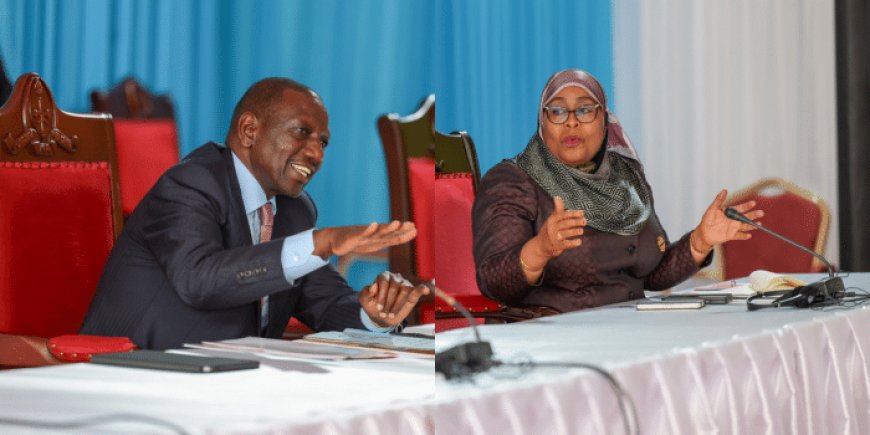Kenya Demands That Tanzania Stops Blocking Kenyans From Doing Businesses
Trade Cabinet Secretary Lee Kinyanjui warned that the regulations would negatively impact not only Kenya’s economy but also Tanzania’s.

Kenya has urged Tanzania to scrap its recently introduced excise duties, industrial development levy, and laws that restrict foreigners—including Kenyans—from operating in specific sectors, describing the measures as "discriminatory."
In a strongly worded statement issued on Wednesday, Trade Cabinet Secretary Lee Kinyanjui warned that the regulations would negatively impact not only Kenya’s economy but also Tanzania’s.
"The measures taken by Tanzania are substantive and undermine the core objective of regional economic integration under the Common Market Protocol (CMP). All Partner States made binding commitments, and Article 13 of the EAC CMP specifically allows EAC nationals to establish and operate businesses, not to treat EAC nationals less favorably than their own nationals.

Trade Cabinet Secretary Lee Kinyanjui speaking at the launch of the 2025 Manufacturing Priority Agenda by Kenya Association of Manufacturers (KAM) on March 27, 2025. /LEE KINYANJUI
"Kenya requests that these restrictions be removed and that Tanzania revert to measures provided for in the EAC protocol. The Business Licensing Order, which seems to criminalise lawful EAC investments, will hurt both our economies. It is therefore critical, in the spirit of the EAC, that bilateral engagements be held to resolve these issues," the statement by CS Kinyanjui read in part.
In a directive issued by Industry and Trade Minister Selemani Saidi Jafo, the restricted ventures span across the mining, tourism, agriculture, environmental, and tech sectors.
Prohibited businesses include mobile money services, electronics and phone repairs, salons (except in hotels or for tourism), cleaning services, small-scale mining, postal and parcel deliveries, tour guiding, running media stations, managing museums and curio shops, business and real estate brokering, as well as clearing and forwarding services.
Foreign nationals were barred from engaging in farming, crop buying, running or owning gambling machines outside of casinos, and managing or owning micro and small-scale industries in Tanzania.
Kinyanjui, however, criticised Tanzania's recent trade measures, calling them significant and damaging to the fundamental goal of regional economic integration as outlined in the CMP.
He noted that Kenya, through the Ministry of Investments, Trade, and Industry (MITI), has already been participating in several consultative forums aimed at aligning such trade policies with the principles of the East African Community (EAC) Customs Union Protocol.
Tanzania’s latest actions have sparked concern among small-scale traders, with rising tensions spilling over into the political arena. In response, some Kenyan leaders and citizens have demanded reciprocal action. Nandi Senator Samson Cherargei called on President William Ruto to bar Tanzanian businesses from operating in Kenya, even suggesting a ban on Tanzanian street beggars in urban areas.
"The Kenyan government must retaliate by also banning Tanzanian businesses in Kenya, including street beggars from Tanzania in our cities and towns," he stated.
While CS Kinyanjui emphasised that retaliation is not Kenya’s immediate course of action, he warned it remains an option if diplomatic efforts fail. He is scheduled to hold talks with Tanzanian officials next week to address the dispute.
Among the upcoming engagements is a technical meeting on the tobacco trade set for August 4–5, 2025, in Arusha. This will be followed by a Joint Trade Committee session on August 11–12 to review various levies, fees, and charges.
Tanzania's new regulations have impacted several sectors, including postal and parcel delivery, tour guiding, the establishment and operation of radio and TV stations, museums, curio shops, business and real estate brokerage, and clearing and forwarding services.







